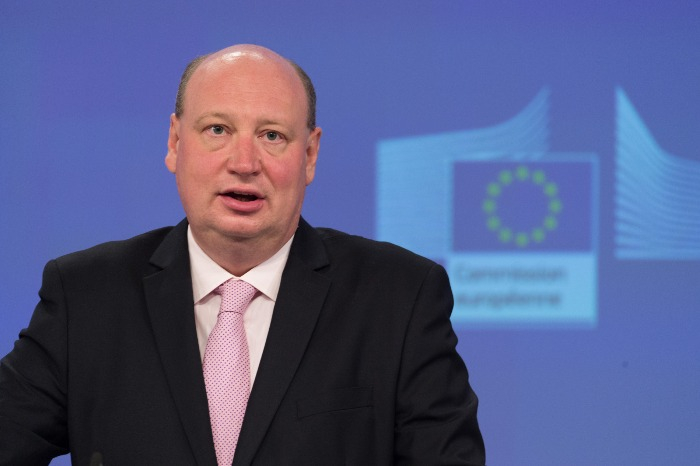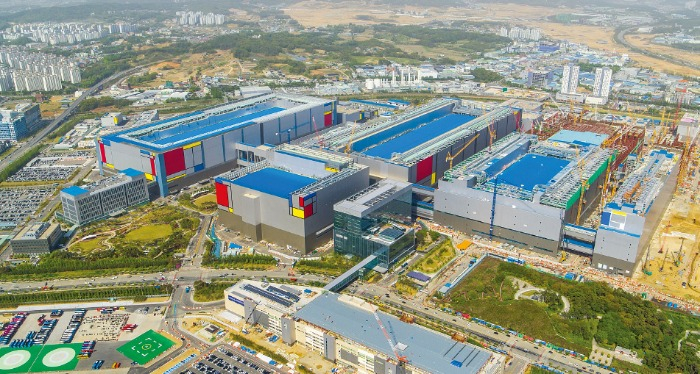Electric vehicles
EV tax credits may prove detrimental to the US: EU official
The EU needs to consider all options to counter the US' tax credit provisions against foreign-made cars
By Sep 22, 2022 (Gmt+09:00)
2
Min read
Most Read
LG Chem to sell water filter business to Glenwood PE for $692 million


Kyobo Life poised to buy Japan’s SBI Group-owned savings bank


KT&G eyes overseas M&A after rejecting activist fund's offer


StockX in merger talks with Naver’s online reseller Kream


Mirae Asset to be named Korea Post’s core real estate fund operator



The US decision to remove tax incentives for cars produced outside North America may violate World Trade Organization (WTO) provisions and could be detrimental to Washington, a senior European Union (EU) told The Korea Economic Daily.
The US Senate passed the $430 billion Inflation Reduction Act (IRA) last month, which includes provisions to remove tax credits from electric vehicles produced outside the continent.
“The IRA’s discriminatory conditions appear to violate WTO provisions," Henrik Hololei, director-general of the European Commission’s department for mobility and transport, said in a recent interview.
"The EU and South Korea are rightfully concerned as these new measures will negatively affect our automotive, battery and energy industries.”
The interview was conducted during his visit to Seoul last week to attend senior-level talks on transportation cooperation between South Korea and the EU. Hololei also serves as deputy secretary-general of the European Commission
“The EU agrees that tax credits can be important incentives to drive demand for electric vehicles ... However, we strongly believe that any subsidy needs to be fair and not distortive. It should in particular not discriminate between foreign and domestic suppliers,” he noted.
“At the same time, these measures could also prove detrimental for the US’ green transition as discriminating foreign manufacturers makes it much more difficult for them to contribute to the electrification of vehicles in the US, thus reducing the choice of US consumers when they wish to buy electric vehicles.”
For its part, South Korea argued that the bill, aimed at countering China's growing influence, risks violating the free trade agreement (FTA) with Washington and WTO rules.
He urged Washington to amend the tax credit provisions.
“The best solution would be for the US to amend the tax credits so that they do not discriminate against foreign-sourced goods. ... The EU will therefore have to consider all options,” the director-general stressed.

During his stay in South Korea, Hololei visited Hyundai Motor Co., Samsung Electronics Co. and Korean Air Co. to discuss hydrogen mobility and transport.
With the three leading Korean companies, he discussed possible cooperation in the areas of connected and automated driving, as well as digitalization and smart mobility.
“Korea in general and in particular are the world leaders when it comes to the deployment of hydrogen solutions,” he explained.
“With Samsung, we discussed the new opportunities that will be brought to the mobility center by the deployment of 5G technology.”
More than 25,000 hydrogen-powered vehicles are operating on the roads across the country.
But the lack of the necessary infrastructure such as charging stations is delaying the transition to EVs and hydrogen cars, he stressed, urging Seoul to increase spending to build the relevant facilities.
Write to Han-Shin Park at phs@hankyung.com
Yeonhee Kim edited this article.
More to Read
-
 Electric vehiclesKorean PM Han says EV tax credits may violate FTA rules
Electric vehiclesKorean PM Han says EV tax credits may violate FTA rulesSep 21, 2022 (Gmt+09:00)
1 Min read -
 BatteriesFord CEO heads to Korea to discuss EV tax credit with LG Energy, SK On
BatteriesFord CEO heads to Korea to discuss EV tax credit with LG Energy, SK OnSep 16, 2022 (Gmt+09:00)
3 Min read -
 Electric vehiclesKorea resolution on US EV incentives passes parliament
Electric vehiclesKorea resolution on US EV incentives passes parliamentSep 02, 2022 (Gmt+09:00)
2 Min read -
 Business & PoliticsWashington, Seoul to hold formal talks on US EV tax credit act
Business & PoliticsWashington, Seoul to hold formal talks on US EV tax credit actAug 31, 2022 (Gmt+09:00)
2 Min read -
 Electric vehiclesSeoul says US tax credit bill risks violation of FTA, WTO
Electric vehiclesSeoul says US tax credit bill risks violation of FTA, WTOAug 12, 2022 (Gmt+09:00)
2 Min read
Comment 0
LOG IN


